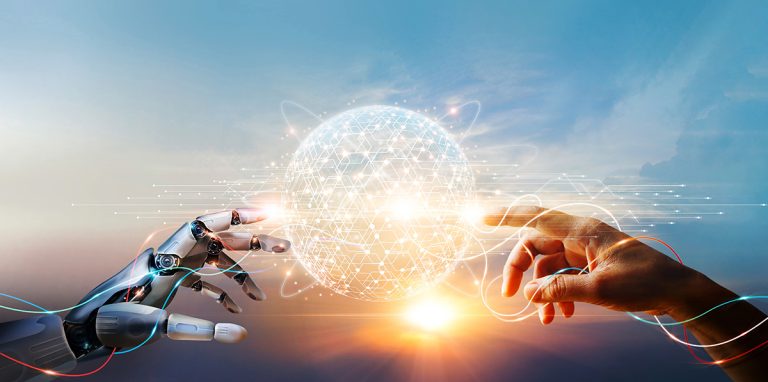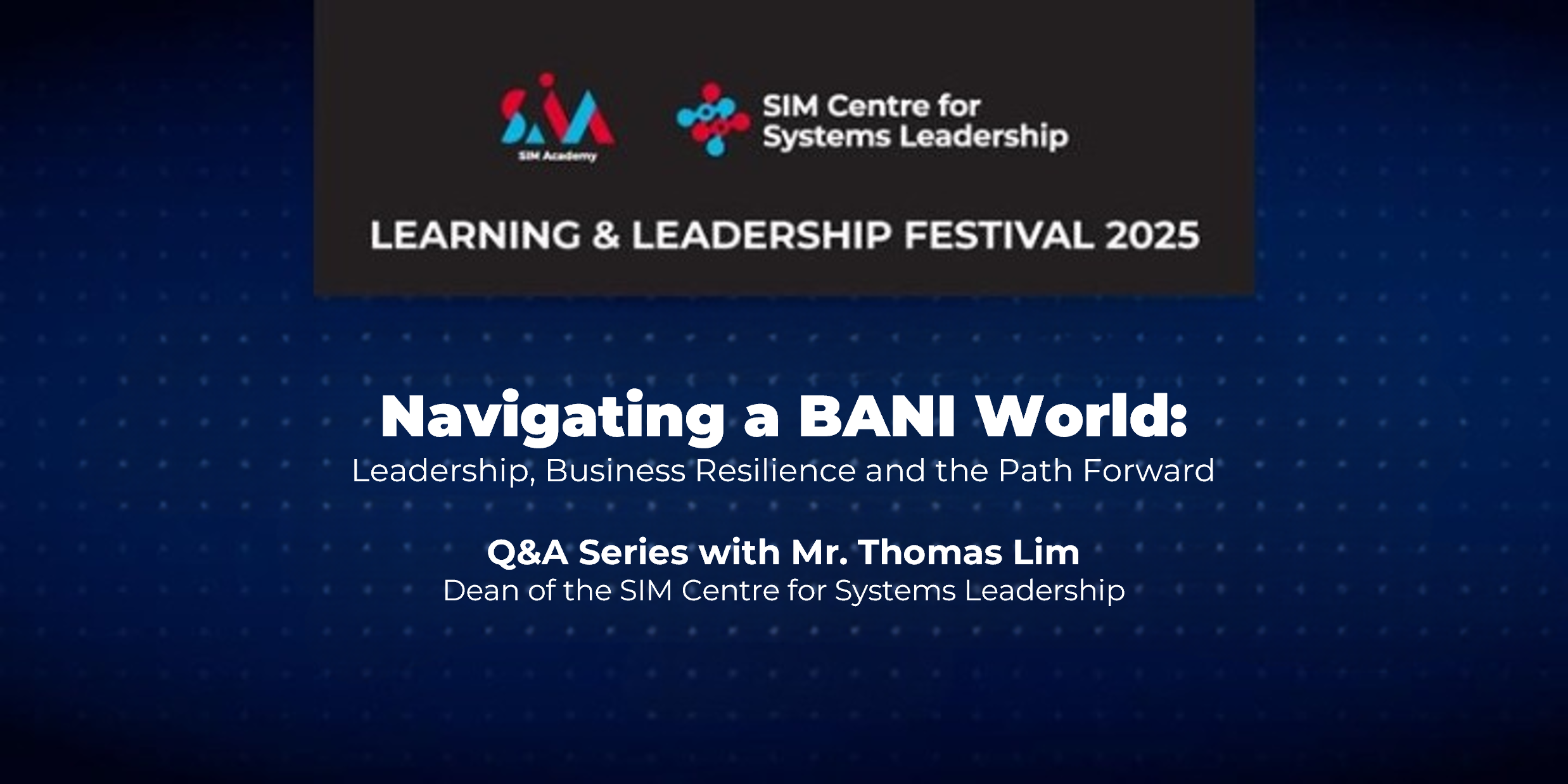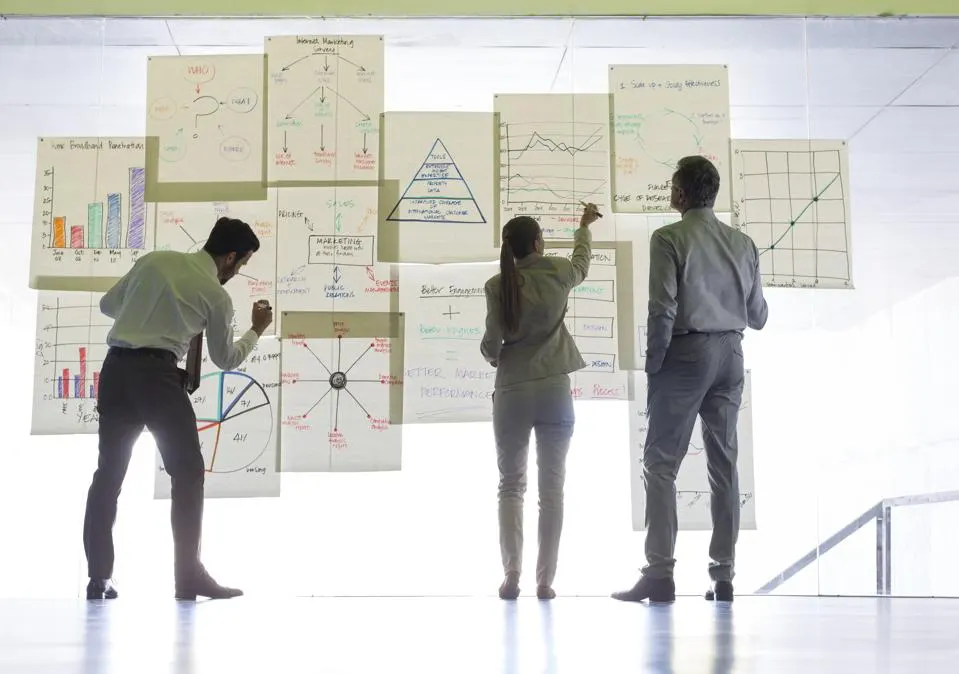Take the train these days and you will notice a robot cleaner mopping the floor at the station as it moves. The bot has a perpetual smile on its face, is smart enough to avoid collisions with commuters, and cleans quickly and efficiently. Watching the machine work, it is easy to think that robots are well and truly taking over our jobs.
But stay a little longer and you will see its human counterpart coming to programme it to do certain tasks. The human counterpart still cleans too, but he is now freed up to perform more complex duties such as identifying and cleaning high-contact touch points. The bot is not a replacement for the human cleaner; it is a tool that helps the human cleaner work better.
This scenario offers a zoomed-in view of workplaces around the world as the age of artificial intelligence (A.I.) dawns. Discussions on A.I. tend to revolve around the jobs it will destroy or create. The World Economic Forum’s 2023 Future of Jobs report estimated that out of the 673 million jobs it studied, 83 million jobs would be wiped out by 2027 – chiefly due to digitalisation and adoption of new technologies. The number is frightening, but the report also states that 69 million jobs will be created. This works out to a net decrease of 14 million jobs, or 2 per cent of current employment.
Indeed, some jobs will disappear altogether. But it is clear that while A.I. has the ability to automate certain tasks, it is as yet incapable of replacing whole occupations. Most jobs will be transformed, with technology augmenting human expertise. Disruptive technologies have given us new tools to work with. Those who can identify future trends and harness these tools stand to gain the most from this A.I. revolution.
Anticipating Future Work Trends to Stay Ahead
To this end, we see three key trends that will define our shared future.
First, the world will need to contend with the issue of technological disruption. The sweeping changes will alter our lifestyles and behaviours. New businesses will emerge and upend the status quo. Companies and workers who are insufficiently prepared for these developments are at risk of falling behind.
A study by the Institute of Policy Studies found that the less-educated workers in Singapore are generally less aware of technological advancements and disruptions, less open to workplace changes and less adept at upskilling themselves. They are hence more likely to be displaced by automation and digitalisation. Technological advancements such as AI and big data are threatening to widen the income gap by potentially wiping out jobs that have provided for the middle class. We will need to ensure that people continue to get fair opportunities through learning and relearning so they can move up the social ladder.
The second is sustainability, which is fast becoming a staple of businesses and jobs here. Many organisations are transitioning towards sustainable practices to mitigate environmental impacts, enhance operational efficiency and meet evolving consumer expectations.
As environmental, social and governance (ESG) reporting becomes mainstream, businesses around the world will come under greater scrutiny in how they treat workers, limit emissions and pollution and impact people and the planet. Businesses here know this. A 2022 sustainability report by NTUC LearningHub revealed that nine in 10 organisation leaders here believe it is imperative to incorporate sustainability practices within their business strategies. It is no longer only about capital and shareholder value – organisations must also balance profit and purpose. Indeed, purpose and profit can be achieved together, for instance through impact investing, or investments that aim to promote social good or prevent a social ill while generating financial returns.
Lastly, Singapore is ageing – and ageing fast. By 2030, one in four Singaporeans will be over 65. To ensure Singaporeans can continue working in their golden years, the country will raise its retirement and re-employment ages to 65 and 70 by 2030. Singaporeans will soon have to work for longer. In the face of an ever-changing world, how will that affect us from a learning perspective to allow us to remain employable for a longer period of time?
Implications – Resilience, Complexity and Human Touch
So how will these trends impact individuals and organisations? At the individual level, frequent disruptions will require all of us to hone a resilient mindset to handle changes. In the face of disruptive technologies, for example, we will not only need to be digitally fluent but also hone our creative and cognitive capabilities.
Second, the irony of an increasingly digital world is that it will also require even more of a human touch. No matter how much technology proliferates the market, it lacks the ability to engage people. The human connection will still retain enormous importance in sectors such as nursing and palliative care – especially given Singapore’s ageing population
For organisations, tackling modern-day challenges like climate change entails unprecedented levels of complexity which cannot be solved by an entity alone. Achieving sustainable success will require an ecosystem approach that involves collaboration and coordination at an industry or even government level. This will require entirely new leadership capabilities, such as the ability to see challenges from a systems leadership perspective.
With changes coming thick and fast, job redesign will also be a key focus to integrate these new skill sets. One consideration is strategic organization development that incorporates the concepts of complexity against time span in job role redesign.
Indeed, Singapore’s job market is currently facing a skills mismatch, with the 2022 Ministry of Manpower job vacancy report indicating that a lack of necessary specialised skills was one key reason for vacancies in PMET (professional, managerial, executive and technical) jobs.
It is why the Government has introduced Job-Skills Integrators to help identify and bridge the gap between skills and jobs. Organisations can do their part by relooking job roles to motivate staff to apply the new skills learnt.
Learning as an Intervention
Domain expertise alone is no longer sufficient to help us navigate the future workplace. This is why the learning curriculum at SIM Academy focuses on three key layers, with each building on another.
The first layer is context, which refers to technical skill sets. This is the foundation on which the other skills are built. The next layer is cognitive ability, which nurtures innovative thinking; the last layer looks at one’s capability for complexity, where learners progressively move towards higher-order thinking.
We named this learning methodology the SIM C-Cube, where individuals are empowered to deepen their technical skills to spur innovative thinking and take on more complex tasks such as developing strategies and forecasting future trends. Powering the C-Cube is our D.A.S.H.+ framework, which helps develop design, agile, and systems thinking abilities to hone learners’ development.
With an eye on the trends highlighted earlier, our offerings are focused on four key domains.
The first is leadership and management. This touches on areas such as systems leadership, which involves engaging and collaborating with different stakeholders on common but complex challenges that will yield greater results when approached at the ecosystem level.
The second domain hones cognitive and soft skills. Indeed, the 2022 Skills Demand for the Future Economy Report by SkillsFuture indicated that there is increasing employer demand for Critical Core Skills such as creative thinking, self-management and communication. This becomes even more crucial in the age of AI, where human-to-human interaction become even more paramount to solve complex problems.
Sustainability forms the third domain, which tackles areas such as transitioning to the best practices, governance, carbon management and implementing practices of a circular economy, balancing the needs of the business and the well-being of the environment.
The final domain looks at industry-specific roles and creates curricula tailor-made for respective jobs. Think of it as bespoke programmes that help maximise functional performance, effectiveness, and efficiency across all roles in an organisation, to meet the strategic goal of the organisation.
As new technologies are developed, the workplace will continue to evolve. The way to survive and thrive in the face of disruption is not to master the latest and most in-demand technical skill. Instead, it is acquiring transferable skills – everything else beyond the technical expertise required for a job – that will make the difference.
For more information on how SIM Academy can transform your workforce through a comprehensive suite of integrated learning solutions, please reach out to us at simacademy@sim.edu.sg to arrange a discussion.







